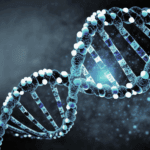Angela Goodrich, a mother of ten from Toquerville, Utah, faced a diagnosis that would upend her family’s world in a matter of weeks. At just 45, Angela’s life was cut short by a rare illness that began with subtle signs-an unusual sense of fullness in her abdomen and swelling in her legs. Her story, marked by resilience and a desire to inform others, highlights the challenges of a condition that affects only a small fraction of people each year.
A Sudden Turn: The Early Signs
Angela’s experience started innocuously enough. She noticed her belly felt unusually full, and her legs began to swell. Having recently stopped taking medication for polycystic ovarian syndrome, she initially suspected these changes were related to that. Her husband, Matt, also observed these shifts, noting the swelling was significant and hard to ignore.
During a family cruise, Matt saw his wife struggle with shortness of breath when climbing stairs and noticed she was experiencing abdominal discomfort. Angela tried to stay optimistic, dismissing fleeting worries about something more serious. She made a promise to a family member to get checked out upon returning home.
An Unexpected Diagnosis
A visit to urgent care in early March led to a series of tests. Bloodwork revealed her potassium levels were alarmingly low, prompting her doctor to send her to the emergency room for immediate treatment. Further imaging provided answers no one wanted: a mass had been detected.
The diagnosis was Adrenocortical carcinoma, a rare and aggressive malignancy originating in the outer layer of the adrenal glands. By the time doctors identified the illness, it had already reached an advanced stage. Angela had a tumor the size of a baseball on her adrenal gland, with additional growths in her liver and lungs. The disease was progressing rapidly, leaving few treatment options.
What is Adrenocortical Carcinoma?
Adrenocortical carcinoma is a rare type of cancer that develops in the cortex, or outer layer, of the adrenal glands-small organs perched atop each kidney. These glands are responsible for producing hormones that regulate essential functions, such as blood pressure, metabolism, and the body’s response to stress.
This condition is diagnosed in roughly one out of every million people annually in the United States. It tends to affect women more often than men, with the average age of diagnosis around.
Read more: Simple Sponge Test Can Detect Cancers Hidden In Plain Sight That Are Often Mistaken for Indigestion
Symptoms and Hormonal Effects
The symptoms of adrenocortical carcinoma can be subtle at first, often mimicking more common conditions. People may experience:
- Abdominal pain or a sense of fullness
- Swelling in the legs
- Back discomfort
- Unexplained weight changes
- High blood pressure
- Fatigue or muscle weakness
- Changes in appearance, such as a rounded face or increased body hair (especially in women)
- Mood changes, like depression or confusion
In Angela’s case, her tumor produced excessive hormones, leading to high levels of cortisol-a condition known as Cushing syndrome. This can cause a round, full face, weight gain around the midsection, muscle weakness, and mental changes. Low potassium in the blood, as Angela experienced, is also a hallmark of this hormonal imbalance.
The Impact on Family
Angela and Matt’s life together began in high school. Over the years, they built a bustling household with ten children-one son and nine daughters, ranging in age from 7 to 26. Eight of their children still lived at home, and the family had recently celebrated the arrival of twin grandsons.
When Angela’s diagnosis came, the news was a shock. Despite the gravity of her condition, she remained determined to share her story, hoping her experience might help others recognize the signs of this rare disease.
Read more: Man Diagnosed With Stage Four Cancer Reveals The Common Symptom He Ignored
Navigating Treatment
Given the advanced stage of her illness, Angela’s treatment options were limited. She began chemotherapy just before Easter, but her body was already struggling. The family received support from friends, neighbors, and relatives, who provided meals and helped around the house.
Angela expressed deep gratitude for this outpouring of kindness, emphasizing how much the support meant to her and her family in such a difficult time.
Angela’s health declined rapidly. Despite her exhaustion from treatment, she agreed to be interviewed, wanting to raise awareness about adrenocortical carcinoma. She passed away the next day, surrounded by her husband and all ten children.
Her passing was peaceful, according to Matt, who reflected on how fortunate they were to have shared their lives with her.
Understanding the Risk Factors
The causes of adrenocortical carcinoma remain unclear. Most cases develop sporadically, without a clear genetic link. However, some inherited conditions can increase the risk, including Li-Fraumeni syndrome, Beckwith-Wiedemann syndrome, and multiple endocrine neoplasia type 1. Even so, Angela had no known family history of the disease.
Diagnosis and Management
Because adrenocortical carcinoma is so rare, it is often diagnosed at an advanced stage. Tests to identify the illness include:
- Imaging (CT scans, MRI, PET scans) to locate tumors
- Blood and urine tests to measure hormone levels
- Biopsy in some cases to confirm the diagnosis
Treatment depends on the stage at diagnosis. When possible, surgical removal of the tumor is the preferred approach. Chemotherapy and, in some cases, radiation therapy may follow, especially if the disease has spread. Ongoing monitoring is essential, as recurrence is possible.
Angela’s story underscores the importance of paying attention to subtle changes in one’s health. Early symptoms of adrenocortical carcinoma can be mistaken for more common conditions, delaying diagnosis and treatment. By sharing her experience, Angela hoped to encourage others to seek medical advice if they notice persistent, unexplained symptoms.
In the wake of Angela’s passing, friends and community members rallied to support the Goodrich family. A fundraising page was established to help with expenses, and organizers described Angela as a beloved daughter, sister, and friend.
Angela Goodrich’s journey through a rare and aggressive illness is a testament to resilience and the power of community. Her willingness to share her story, even in the face of overwhelming odds, leaves a legacy of awareness and compassion.
Her family continues to honor her memory, cherishing the time they had together and the lessons learned along the way. For those who knew her, Angela’s kindness, strength, and determination remain an enduring source of inspiration.
Read more: It’s A Common Theme’: Cancer Doctor Shares What She Regularly Sees In Her Patients Early On
Recognizing the Signs: What to Watch For
For readers, Angela’s experience offers a reminder to listen to your body and advocate for your health. If you notice persistent symptoms such as abdominal pain, swelling, unexplained weight changes, or unusual fatigue, consider seeking medical advice. While adrenocortical carcinoma is rare, early detection can make a significant difference in outcomes.
Final Thoughts
The Goodrich family’s story is one of love, perseverance, and hope. While Angela’s life was tragically brief, her impact continues through the awareness she brought to a little-known disease. By sharing her journey, her family hopes to help others recognize the signs and seek help sooner.
Adrenocortical carcinoma remains a rare and challenging diagnosis, but stories like Angela’s remind us of the importance of community, gratitude, and the enduring bonds of family.










